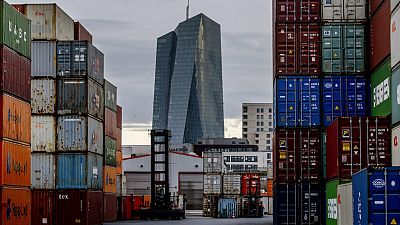BERLIN (Reuters) - Business activity and job creation in Germany's services sector remained robust in August despite a recession in manufacturing, a survey showed on Wednesday, but a loss of business confidence pointed to a rocky road ahead for Europe's largest economy.
IHS Markit's final composite Purchasing Managers' Index (PMI), which tracks the manufacturing and services sectors, rose to 51.7 from 50.9 in July.
That was better than the preliminary reading and comfortably above the 50 mark that separates growth from contraction, showing that the robustness of the services sector still helped to offset the prolonged weakness in manufacturing.
"Job creation across the service sector remains a buoyancy aid for the economy, at least for now, while low and potentially easing inflation across the private sector is another supportive factor for domestic demand over the rest of the year," said Phil Smith, Principal Economist at IHS Markit.
The PMI for the services sector improved to 54.8 in August from 54.5 in the previous month, the survey showed.
Business morale across the service sector worsened to hit its lowest level in almost five years and the loss of confidence could slow down investment and job creation in coming months.
"The worry was that the weakness in the manufacturing sector would eventually infect the rest of the economy, and the service sector is certainly showing symptoms of the malaise having spread," said Phil Smith, Principal Economist at IHS Markit.
The survey showed that many service providers were relying on backlogs of work to sustain growth as new orders weakened to reach their slowest level in seven months, with new work from abroad being particularly sluggish.
Germany's export-reliant economy is suffering from weaker foreign demand and business uncertainty caused by trade disputes and Britain's planned but delayed exit from the European Union.
The government expects growth to slow to 0.5% this year from 1.5% in the previous year.
(Reporting by Michael Nienaber; Editing by Catherine Evans)



